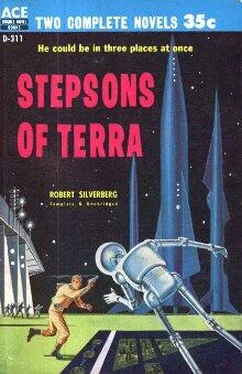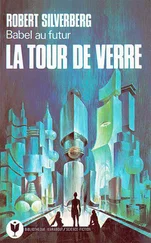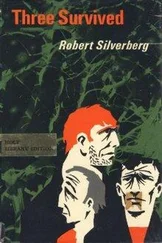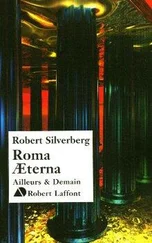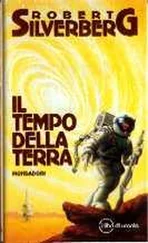“Twoday afternoon. To my self of an earlier time—to the man I call Ewing-sub-two, from Ewing-sub-one. Read this with great care, indeed memorize it, and then destroy it utterly.
“You have just been snatched from the hands of the interrogators by what seemed to you miraculous intervention. You must believe that your rescuer was none other than yourself, doubling back along his time-track from two days hence. Since I have already lived through the time that will now unfold for you, let me tell you what is scheduled to take place for you, and let me implore you to save our mutual existence by following my instructions exactly.
“It is now Twoday. Your tired body will sleep around the clock, and you will awaken on Fourday. Shortly after awakening, you will be contacted by Scholar Myreck, who will remind you of your appointment with him and will make arrangements with you to take you to his College in the suburbs. You will go. While you are there, they will reveal to you the fact that they are capable of shifting objects in time—indeed, their building itself is displaced by three microseconds to avoid investigation.
“At this point in my own time-track, I compelled them to send me back in time from Fourday to Twoday, and upon arriving here proceeded to carry out your rescue. My purpose in making this trip was to provide you with this information, which my rescuer neglected to give me. Under no conditions are you to make a backward trip in time\ The cycle must end with you.
“When Myreck shows you the machine you are to express interest, but you are not to request a demonstration. This will automatically create a new past in which a Ewing-sub-three actually did die under Firnik’s interrogation, while you, Ewing-sub-two, remain in existence, a free agent ready to continue your current operations. If this phase is not clear to you, read it very carefully.
“As for me, I am no longer needed in the plan of events, and so intend to remove myself from the time-stream upon finishing this note. For your information, I intend to do this by short-circuiting the energitron booth in the lobby while I am inside it, a fact which you can verify upon awakening by checking the telestat records for Twoday, the Eleventh. This action, coupled with your refusal to use Myreck’s machine, will put an end to the multiplicity of existing Ewings and leave you as the sole occupant of the stage. Make the most of your opportunities. I know you are capable of handling the task well.
“I wish you luck. You’ll need it.
‘Tours in—believe me—deepest friendship,
“Ewing-sub-one.”
When he had finished the note, Ewing drew it from the machine and read it through three times, slowly. There was no rush now. He folded it, drew from his pocket ten credits—something else his predecessor along the time-track had neglected—and sealed the message and the money in an envelope which he placed on the chair next to the sleeping man’s bed.
Satisfied, he tiptoed from the room, locking the door behind him, and rode down to the hotel lobby. There was no longer any need for the mask, so he discarded it; he had left the stun-gun upstairs, in case Ewing-sub-two might have need for it.
He picked up a phone in the lobby, dialed Central Communications, and said, “I’d like to send a message to Scholar Myreck, care of College of Abstract Science, General Delivery, City of Valloin Branch Office 86.” It was the dummy address Myreck had given him. “The message is, quote: Baird Ewing has been interrogated and severely beaten by your enemies. At present he is asleep in his hotel room. Call him this afternoon and arrange to help him. Unquote. Now, that message is not to be delivered before Fourday, no later than noon. Is that clear?”
The robot operator read the message back, including instructions for delivery, and finished with, “One credit, please.”
Ewing dropped coins into the slot until the operator signaled acknowledgement. He nodded in satisfaction; the wheels were fully in motion, now, and he could retire from the scene.
He crossed the lobby to a loitering Earther and said, “Excuse me. Could I trouble you for change of a one-credit bill? I’d like to use the energitron booth and I don’t have any coins.”
The Earther changed the bill for him; they exchanged a few pleasant words, and then Ewing headed for the booth, satisfied that he had planted his identity. When the explosion came, there would be a witness to say that a tall man had just entered the booth.
He slipped a half-credit coin into the booth’s admission slot; the energy curtain that was its entrance went light pink long enough for Ewing to step through, and immediately returned to its glossy black opacity afterward. He found himself facing a beam of warm red light.
The energitron booth was simply a commercial adaptation of the ordinary ion-beam shower; it was a molecular spray that invigorated the body and refreshed the soul, according to the sign outside. Ewing knew it was also a particularly efficient suicide device. A bright enamel strip said:
CAUTION!
The operator is warned not to approach the limit-lines inscribed in the booth or to tamper with the mechanism of the energitron. It is highly delicate and may be dangerous in unskilled hands.
Ewing smiled coldly. His time had come to quit the scene—but the body and the personality of Baird Ewing of Corwin would not be obliterated, merely one superfluous extension of it. With steady hands he reached for the sealed control-box; he smashed it open and twisted the rheostat within sharply upward. The quality of the molecular beam changed; it became fuzzier, and crackled.
At the limit-lines of the booth, he knew an area existed where planes of force existed in delicate imbalance; interposing an arm or a leg in such a place could result in a violent explosion. He moved toward the limit-lines and probed with his hands for the danger area.
A sudden thought struck him: What about my rescuer? He had left him out of the calculations completely. But yet another Ewing-one had existed, one who had not left any notes nor stun-guns nor money, and who perhaps had not committed suicide, either. Ewing wondered briefly about him; but then he had no further time for wondering, because a blinding light flashed, and a thunderous wave of force rose from the booth and crushed him in its mighty grip.
Ewing woke.
He felt groggy, stiff and sore in a hundred places, his forehead throbbing. He rolled over in the bed, clamped a hand to his forehead, and hung on.
What happened to me?
Memories drifted back to him a thread at a time. He remembered discovering Byra in his room, drinking the drugged liquor she gave him, being hustled away to the Sirian Consulate. Blurred days of endless torment, interrogation, a mind-pick machine lowered over his unresisting head—
Sudden rescue from an unknown source. Sleep. His memories ended there.
Achingly he crawled from the bed and stared at himself in the mirror. He looked frighteningly haggard. Dark circles ringed his eyes like crayon marks, and the skin of his face hung loose under his chin, stretched tight elsewhere. He looked worse than he had at the moment of awakening, some days before, aboard the ship.
An envelope lay on a chair by the side of the bed. He frowned, picked it up, fingered it. It was sealed and addressed to him. He opened it. Five two-credit notes came fluttering out, and along with them a note. He stacked the banknotes neatly on the bed, unfolded the note, and sat down to read.
Twoday afternoon. To my self of an earlier time—to the man I call Ewing-sub-two, From Ewing-sub-one…
Bleary-eyed as he was, he came awake while reading the note. His first reaction was one of anger and incredulity; then he rubbed his chin thoughtfully as he considered certain turns of phrase, certain mannerisms of punctuation. He had a fairly distinctive style of voicewrite dictation. And this was a pretty good copy, or else the real thing.
Читать дальше
